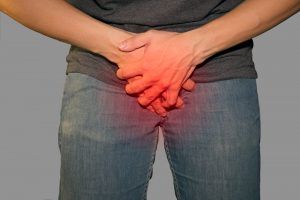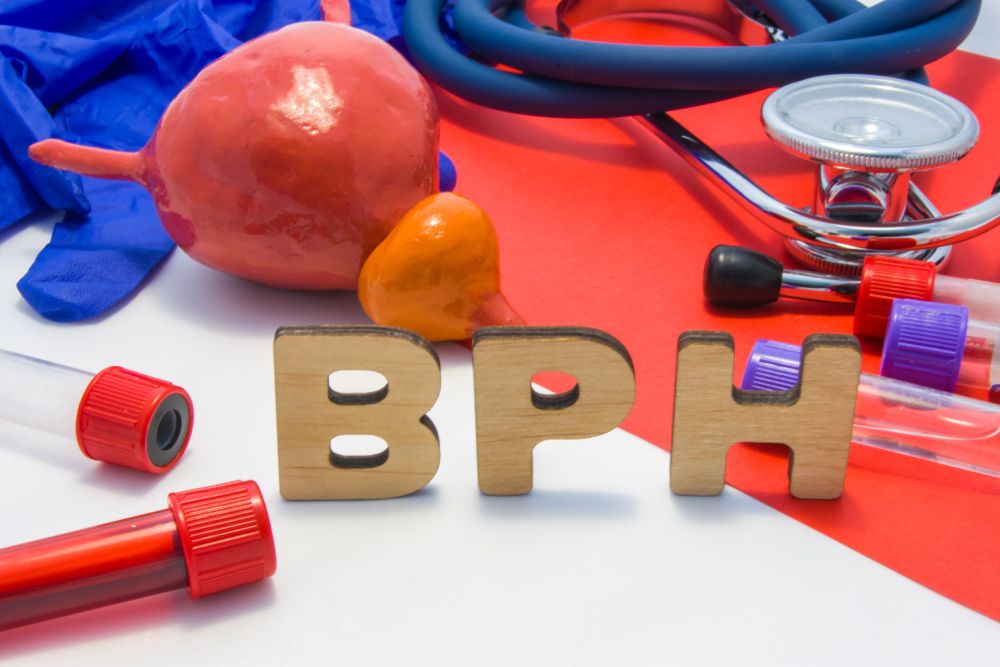Premature ejaculation (PE) is the most common sexual dysfunction problem experienced by men. It’s characterized by ejaculating earlier than desired during a sexual encounter.
While occasional ejaculation problems are normal, continually being unable to delay ejaculation is a sign of a medical problem that should be treated to avoid relationship and self-worth issues. (Learn More)
Primary premature ejaculation is a more severe type of PE, characterized by always (or almost always) experiencing premature ejaculation and never being able to delay an ejaculation as desired.
Secondary premature ejaculation is more common. It occurs in men who were able to have regular ejaculation, but now experience PE as the result of psychological or physical issues. (Learn More)
Although physical and chemical factors may be an issue in some cases of PE, most cases are thought to be caused by psychological problems, including stress, depression, and anxiety. Problematic sexual conditioning and trauma can also cause PE. Less commonly, physical problems like diabetes and thyroid issues may be to blame. (Learn More)
Physical exercises and practices like masturbatory conditioning may be used to help premature ejaculation. Counseling may address issues at the root of many PE cases.
When it comes to medication, antidepressants are usually the first choice of prescribing doctors, as they have been shown in research to aid in PE treatment. Because of side effects and potential risks, including an increased risk of suicide, any medication should be thoroughly discussed with your doctor before starting or stopping it. (Learn More)
What Is Premature Ejaculation?
Premature ejaculation (PE) happens when a man reaches climax too quickly and ejaculates before he wants to during a sexual encounter.
Premature ejaculation is sometimes defined as ejaculation occurring within one minute of starting intercourse, but many in the medical field have adapted a looser and more general definition that can include an earlier-than-desired ejaculation during any phase of a sexual encounter, including foreplay and intercourse.
An isolated incident of premature ejaculation or occasional problems with ejaculating early may be normal and are not usually not indicative of a serious problem, especially during times of high stress or overstimulation. Premature ejaculation may be more common in a new relationship or sexual encounter. However, if you’re continually experiencing problems with ejaculating early, you may have a medical condition.
Premature ejaculation and other sexual problems were once a topic that many men felt embarrassed or ashamed about. However, in the past decade or so, there has been an increased awareness of these issues and just how common and often treatable they are.
According to the Urology Care Foundation, premature ejaculation is the most common sexual dysfunction experienced by men, with about one in three men between the ages of 18 and 59 being affected by it.
There’s no need to suffer with these problems out of fear of judgement, especially when there are treatment options available to ensure you can overcome your PE before it negatively affects your relationship, sex life, or self-esteem. Talking to your doctor honestly and openly about any premature ejaculation issues you’re having will help them create a treatment plan that’s most effective for your symptoms.
Primary vs. Secondary Premature Ejaculation
Men who have had normal ejaculation before but begin to experience premature ejaculation symptoms due to psychological or physical problems are considered to have secondary premature ejaculation, also called acquired premature ejaculation. These are the most common types of premature ejaculation problems experienced.
A more severe form of PE is primary premature ejaculation, also called lifelong premature ejaculation. Primary premature ejaculation is defined by the following three factors:
- Ejaculation occurring before sexual penetration, or within about a minute of penetration, during every (or almost every) sexual experience
- Having no ability to delay ejaculation as desired during every (or almost every) sexual experience
- Experiencing negative consequences caused by ejaculation problems, including frustration, shame, or relationship problems such as avoidance of intimacy.
What Causes Premature Ejaculation?
There are many reasons why a man may experience premature ejaculation, and the research into what causes PE is current and ongoing. Causes may include emotional and biological factors, and current research is also investigating the possibility of PE being caused by hormonal and chemical issues.
Most cases of premature ejaculation are thought to be caused by psychological problems.
- Stress
- Depression
- Anxiety
- Sexual inexperience
- Overstimulation
- Relationship problems
- Body image problems
- Fear of inadequacy
Other psychological problems that may be a factor in premature ejaculation include a personal history that has had a negative effect on sexuality, such as sexual repression or sexual trauma.
Early sexual conditioning, such as getting into a habit of climaxing quickly while masturbating in order to avoid being caught, may be another cause of PE.
While psychological issues are thought to be at the root of most premature ejaculation issues, some men experience PE as the result of biological and physical problems.
- Hormonal problems
- Thyroid disorders
- Multiple sclerosis
- Alcoholism and drug use
- Prostate conditions
- Diabetes
What Medications Treat Premature Ejaculations?

Some men use physical exercises (such as Kegel exercises, which strengthen the pelvic floor muscles) and home practices (including masturbating practices such as the “squeeze method” that encourage ejaculation delay) to address their premature ejaculation. Counseling may prove useful in working to address the underlying issues of depression or anxiety that are often present with PE problems.
The application of numbing creams, such as lidocaine, directly on to the penis to delay ejaculation is a reported treatment option, although little research has been done on this method.
Many men also speak to their doctors about beginning medication treatment to help with their premature ejaculation. Although the Food and Drug Administration (FDA) has not approved any drugs to specifically treat premature ejaculation, antidepressants have long been prescribed off-label for this use. They are considered by many in the health field to be the best drug option for those looking to treat PE.
Selective serotonin reuptake inhibitors (SSRIs) are among the most commonly prescribed antidepressants thought to treat premature ejaculation. These drugs work by affecting serotonin, a neurotransmitter linked to treating depression and anxiety disorders. In addition to their antidepressant effects, which may relieve underlying depression and anxiety issues present in many cases of PE, some antidepressants delay ejaculation as part of their physical side effects.
Antidepressants do have side effects and serious risks. It’s important to discuss any potential dangers and issues with your doctor before starting, changing, or stopping use.
Antidepressants have a “black box” warning from the FDA due to the increased risk of suicide by those who taken them. Users are also at risk of developing the life-threatening but rare serotonin syndrome. There are additional potential risks, including seizures and new or increased depression.
Antidepressants can also interact with other drugs or substances. Tell your doctor about any drugs or supplements you are taking.
References
Premature Ejaculation. (May 2017). Harvard Medical School.
Premature Ejaculation (PE). (2016) Urology Care Foundation.
Ask the Doctor: What Works Best for Premature Ejaculation? (February 2015). Harvard Medical School.
Premature Ejaculation: Treatment and Causes. (December 2017). Medical News Today.
Premature Ejaculation: Causes and 10 Tips for Treatment. (January 15, 2015). Psychology Today.
What Is Premature Ejaculation? Urology Care Foundation.
How to Use the Squeeze Technique, the Stop-Start Technique, and More. (April 8, 2019). Healthline.
What’s the Best Drug Treatment for Premature Ejaculation? (March 2008). The Journal of Family Practice.
Medical Therapy for Premature Ejaculation. (October 2011). Therapeutic Advances in Urology.
How Zoloft (Sertraline) Works. (March 15, 2019). Verywell Mind.








